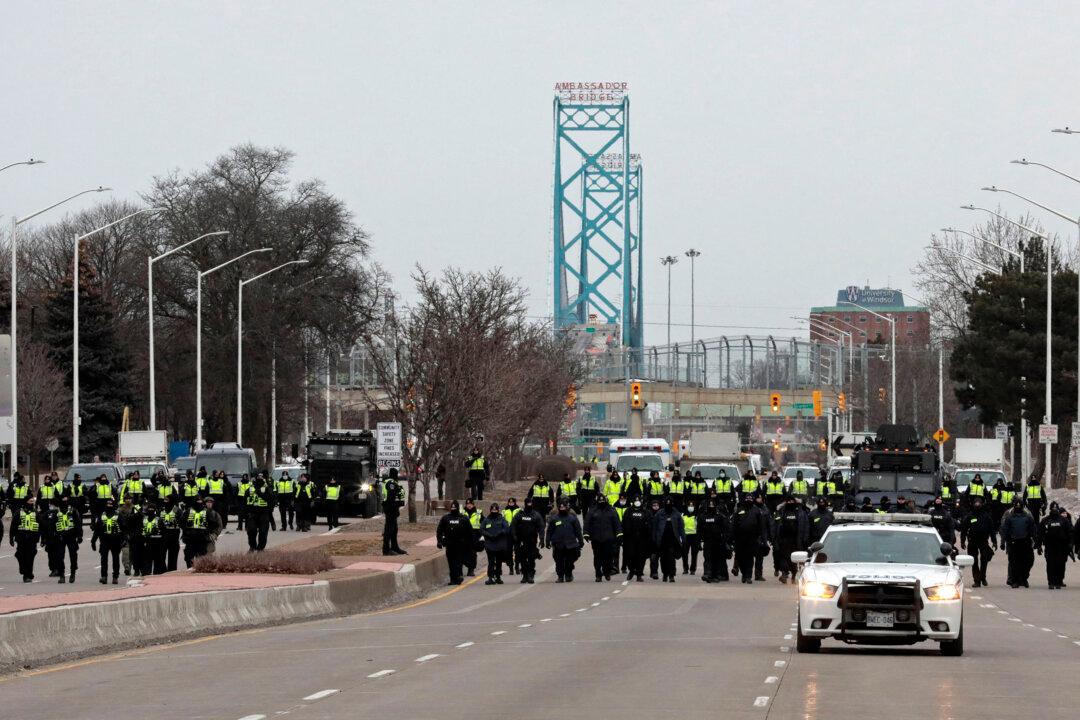The busiest U.S.–Canada border crossing reopened on Feb. 14 after being blocked for about a week by truckers and others protesting against COVID-19 vaccine mandates.
Traffic resumed on the Ambassador Bridge, which connects Windsor, Ontario, with Detroit, after Canadian police officers made arrests to clear the blockade.





